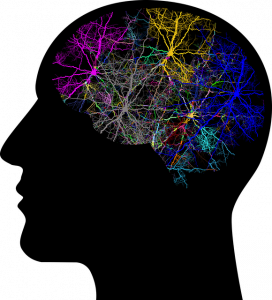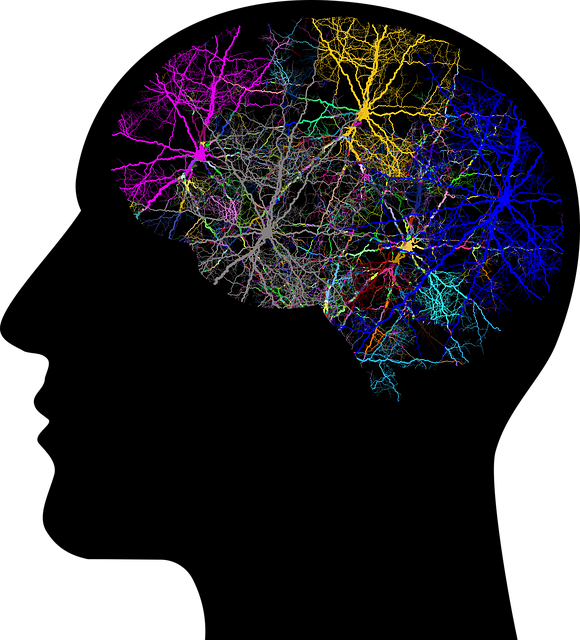Did you know that athletes who use visualization techniques have higher success rates than those who don’t?
In fact, a study conducted by the University of Chicago found that basketball players who practiced visualization exercises improved their free throw shooting accuracy by 23%.
This is just one example of the power of Neuro-Linguistic Programming (NLP) in enhancing performance and motivation.
NLP is a psychological approach to personal development and communication that focuses on the connection between language, behavior, and thought patterns.
By using NLP techniques, you can identify limiting beliefs and negative self-talk that may be holding you back from achieving your goals.
You can then reframe your thoughts and language to create a positive mindset for success.
Additionally, incorporating anchoring and visualization techniques into daily habits and routines can help improve focus, motivation, and overall performance.
In this article, we will explore how NLP can be used to enhance performance in various areas of life.
Understanding the Basics of NLP
 You’re diving into the basics of NLP, getting a grasp on its fundamental principles to better understand how it can benefit you.
You’re diving into the basics of NLP, getting a grasp on its fundamental principles to better understand how it can benefit you.
One of the most promising areas where NLP is being applied today is in personal development. NLP benefits are vast when it comes to performance enhancement and motivation.
By using NLP techniques like reframing and anchoring, individuals can change their behavior and thought patterns effectively. Reframing helps people view situations from a different perspective so they can identify new opportunities or solutions to problems.
Anchoring involves associating a particular emotion with specific actions or stimuli to create positive feelings towards those actions or stimuli; this helps motivate people towards achieving their goals. With these techniques at your disposal, you’ll be better equipped to manage stress levels effectively and improve your communication skills both personally and professionally.
Identifying Limiting Beliefs and Negative Self-Talk
It’s time to confront the inner voice that holds us back and replace negative self-talk with positive affirmations.
Many of us have limiting beliefs and negative self-talk that prevent us from achieving our full potential. These thoughts can be deeply ingrained in our subconscious, making them difficult to identify and overcome.
However, by using NLP techniques, you can learn to recognize these patterns of thinking and change them for the better. One common example of limiting beliefs is an insecurity about one’s abilities or worthiness.
This kind of thought pattern can lead to self-defeating behaviors like procrastination or avoiding challenges altogether. By identifying these insecurities and replacing them with positive affirmations, you can create a more empowering mindset that supports achievement and success.
NLP offers many tools for addressing limiting beliefs and negative self-talk, such as reframing techniques or visualization exercises. With practice, you can learn to use these techniques to overcome your own barriers and achieve your goals with confidence.
Reframing Thoughts and Language for Success
Reframing your thoughts and language can be the key to unlocking success and achieving your goals with confidence. By practicing positive affirmations, you can reprogram your subconscious mind to believe in yourself and your abilities.
Try repeating phrases like “I’m capable of achieving my goals” or “I’ve got the skills necessary to succeed.” These simple statements may seem small, but they can have a powerful impact on how you view yourself and your potential.
Goal setting is another important aspect of reframing thoughts and language for success. Instead of focusing on what you haven’t accomplished or where you’ve fallen short, set realistic goals for yourself that align with your values and passions.
When setting these goals, make sure they’re Specific, Measurable, Achievable, Relevant, and Time-bound (SMART). This approach allows you to break down larger aspirations into manageable steps that will lead to long-term success.
Remember to celebrate even the smallest victories along the way – each accomplishment brings you one step closer to reaching your ultimate goal!
Anchoring and Visualization Techniques
To really boost your success, try anchoring and visualization techniques that can help you envision your goals and feel more confident in achieving them.
Anchoring is a tool used to associate a positive feeling or emotion with a particular physical gesture or action. For example, if you want to increase your confidence before an important presentation, you can anchor that feeling by touching your thumb and index finger together every time you feel confident during practice runs. Eventually, the physical act of touching those fingers together will trigger the feeling of confidence.
Visualization is another powerful technique that taps into the mind-body connection. By using positive affirmations and visualizing yourself achieving your goals, you are programming your mind for success. When visualizing, it’s important to use all five senses to make the experience as real as possible.
Imagine what it would look like, sound like, smell like, taste like and feel like to achieve your goal. This type of visualization helps create neural pathways in the brain which can lead to greater motivation and increased performance towards reaching those goals.
Incorporating NLP into Daily Habits and Routines
You can easily incorporate NLP techniques into your daily habits and routines to help you achieve your goals. By practicing anchoring and visualization, you can train your mind to respond positively to certain physical gestures or actions and program your brain for success through using all five senses in visualizing yourself accomplishing your goals.
One way to do this is by incorporating these practices into your morning routine. Start by creating a ritual that includes positive affirmations, visualizations of achieving your goals, and anchoring the feeling of success through physical actions like clenching your fist or taking a deep breath.
Another effective way to incorporate NLP into daily habits is by finding an accountability partner who also uses these techniques. This person can help keep you motivated and on track with your goals while providing support and encouragement when needed.
You can set up regular check-ins with each other where you discuss progress towards achieving goals, share successes and setbacks, and offer feedback on how to improve. By making NLP techniques a part of both your individual routines as well as shared accountability practices, you’ll be able to stay focused on what matters most – achieving success in all areas of life!
How long does it typically take to see results from using NLP for performance enhancement and motivation?
Did you know that NLP effectiveness can be seen in as little as six weeks? That means you could start seeing results from using NLP for performance enhancement and motivation within a relatively short amount of time.
Success stories abound when it comes to using NLP techniques, such as visualization and goal-setting, to improve focus, confidence, and overall performance. However, it’s important to note that individual results may vary based on your own unique circumstances and commitment level.
By staying strategic, analytical, and empathetic in your approach to using NLP, you can maximize your chances of success and achieve your goals faster than ever before.
Are there any potential negative side effects or risks associated with using NLP techniques?
When it comes to using any kind of technique or methodology, there are always potential drawbacks and ethical concerns that must be taken into consideration. While NLP techniques may have the power to enhance performance and motivation, it’s important to keep in mind that these methods should not be used to manipulate or coerce individuals into doing something they don’t want to do.
It’s also crucial to ensure that the techniques being used are safe and effective, as well as being applied by trained and certified professionals who understand how to use them ethically. Ultimately, while NLP can be a powerful tool for self-improvement, it’s essential to approach it with caution and an awareness of its potential risks.
Can NLP be used to address specific performance issues, such as public speaking anxiety or procrastination?
If you struggle with public speaking anxiety or procrastination, NLP techniques can be incredibly effective in addressing these specific performance issues. Case studies and success stories have shown this.
By working with a trained NLP practitioner, you can learn powerful strategies for managing your thoughts and emotions, breaking negative patterns of behavior, and accessing your inner resources for greater confidence and productivity.
Whether you’re looking to excel in your career or simply improve your personal life, NLP can provide the tools you need to overcome obstacles and achieve your goals.
Is it necessary to work with a trained NLP practitioner, or can individuals effectively use NLP techniques on their own?
If you’re considering incorporating NLP self-practice into your life, it’s important to weigh the benefits of working with an NLP coach versus practicing on your own.
While there are certainly advantages to having a trained practitioner guide you through the process, there are also many benefits to taking ownership over your own learning and growth.
With dedication and discipline, individuals can effectively use NLP techniques on their own to address specific performance issues and enhance motivation.
By setting clear goals and regularly practicing these techniques, you can develop a deeper understanding of yourself and achieve lasting change.
However, if you feel overwhelmed or stuck in your progress, enlisting the help of an experienced coach may provide valuable insights and guidance to help propel you forward in your journey towards personal transformation.
Are there any limitations to the effectiveness of NLP for performance enhancement and motivation, such as certain personality types or mental health conditions?
Personality compatibility plays an important role in the effectiveness of NLP techniques for performance enhancement and motivation. Certain personality types may be more receptive to these methods, while others may struggle to connect with them.
Additionally, efficacy in group settings is another factor to consider. While NLP can certainly be effective on an individual level, its impact may vary when applied within a group dynamic.
Understanding these limitations is crucial when exploring the potential benefits of NLP and determining whether it’s the right approach for you or your team.
By implementing NLP techniques into your daily life, you can enhance your performance and motivation.
By identifying and reframing limiting beliefs and negative self-talk, you can remove mental barriers that hold you back from achieving your goals.
With anchoring and visualization techniques, you can create positive associations with certain behaviors or actions, making them easier to perform consistently.
Incorporating NLP into your daily habits and routines takes time and effort, but the rewards are worth it.
Just like a butterfly emerging from its cocoon, you too can transform into a better version of yourself by using the power of language and mindset.
So go ahead, spread your wings and fly towards success with NLP as your guide.






